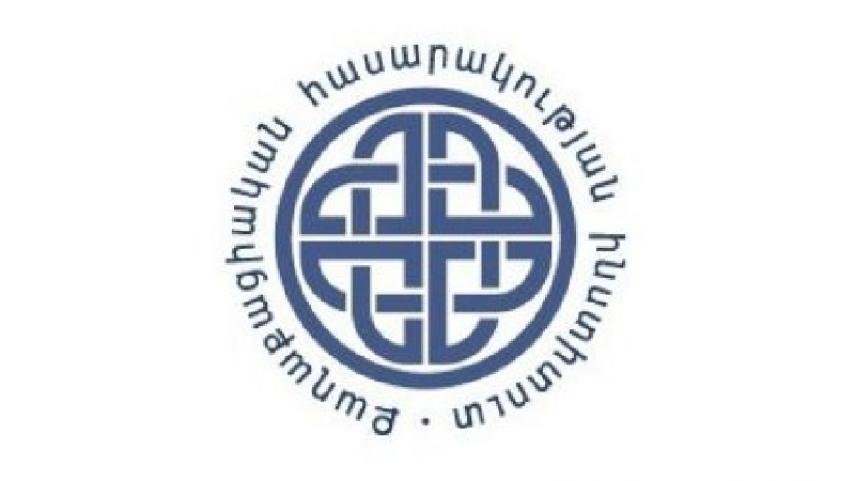NON-GOVERNMENTAL ORGANIZATION
Torture perpetrators shall not be granted amnesty

On 11 October 2013, the Court of First Instance of Kentron and Nork Marash Administrative Districts, chaired by Judge Mnatsakan Martirosyan, sentenced two operative officers of Central Police Division of the Yerevan Police Department Artak Barseghyan and Khachik Bakhbudaryan to 3 years of imprisonment for subjecting Robert Hovsepyan to ill-treatment with the aim to extort confession. They were charged with committing crimes envisioned by Article 309, part 2 (exceding of official power, accompanied with use of violence) and Article 314 (official fraud) of the Criminal Code (CC).
The Court applied the Decision Announcing Amnesty in relation to the 22nd Anniversary of the Independence of the Republic of Armenia, and released the defendants from the courtroom.
Civil Society Institute expresses its deep concerns in regard to this shameful practice of releasing police officers-perpetrators of torture from serving punishment by granting amnesty. As a result, torture perpetrators avoid criminal responsibility or serving their punishment, and this contributes to a climate of impunity among the law enforcement officials.
Such approach of the state is not in compliance with the commitments of Armenia under the UN Convention against Torture and Other Cruel, Inhuman or Degrading Treatment or Punishment. The position of the UN Committee against Torture in this regard is straightforward: amnesties for the crime of torture are incompatible with the obligations of States parties under the Convention, including by impeding victims from seeking full redress[1]. Moreover, “amnesties or other impediments which preclude or indicate unwillingness to provide prompt and fair prosecution and punishment of perpetrators of torture or ill-treatment violate the principle of non-derogability”[2].
Granting amnesty for a crime of torture to operative police officers Barseghyan and Bakhbudaryan is not the first case. Notably, on 13 April 2010, Vahan Khalafyan died in the premises of Charentsavan Police Division, as a result of knife wounds in the peritoneal cavity. The Head of the Investigative Department of Charentsavan Police Division Ashot Haroutyunyan was convicted to 8 years of imprisonment for exceding his official powers by beating V. Khalafyan with the aim to extract confession which unintentionally caused serious consequences (Article 309 (3) of CC). Another police officer of the Criminal Investigation Unit, Moris Hayrapetyan, who was present at beating of Khalafyan and did not prevent it, was convicted for abuse of official power (Article 308.1 of CC) and got suspended sentence of 2 years of imprisonment.
Following the Decision on Granting Amnesty adopted on 26 May 2011, Ashot Haroutyunyan’s unserved sentence was reduced by 1/3 and the suspended sentence of Moris Hayrapetyan was waived.
Importantly, the UN Committee against Torture in 2012 expressed its concerns in relation to granting amnesty to perpetrators of torture in Armenia[3]:
The European Court on Human Rights has emphasized on numerous occasions that amnesty should not be granted to agents of the state accused of torture or other ill-treatment[4]:
Civil Society Institute calls upon the Armenian authorities:
To respect international principles and standards of human rights, and ensure that amnesty or pardon is not granted to agents of the state accused of torture or other ill-treatment;
• To act in compliance with the provisions of the European Convention for thePreventionofTortureand Inhuman or Degrading Treatment or Punishment and UN Convention against Torture and Other Cruel, Inhuman or Degrading Treatment or Punishment, which explicitly oblige the state to carry out investigation and bring to justice alleged perpetrators of torture and inhuman treatment.
[1]UN Committee against
Torture, General Comments 3, paras. 38, 41.
[2] UN Committee against
Torture, General Comments 2, para. 5.
[3]UN Committee against Torture, Concluding Observations on Armenia, 2012,
para 10.
[4] See Turkmen v. Turkey,(App. no.43124/98, 19 December 2006, § 53); Abdülsamet
Yaman v. Turkey (App. no. 32446/96,2 November
2004, § 55).

